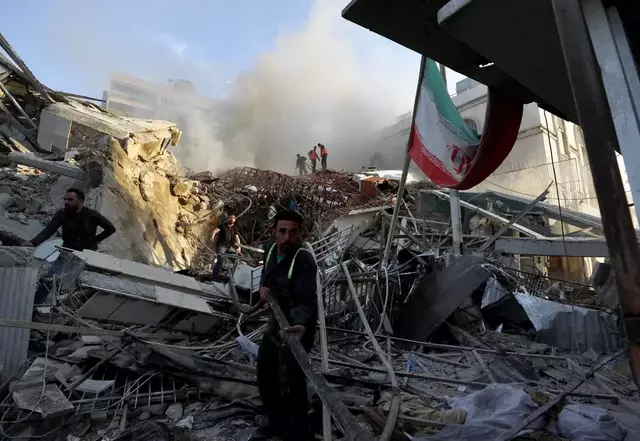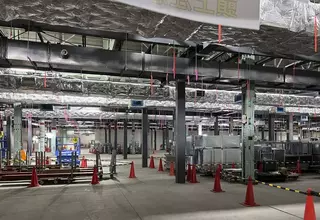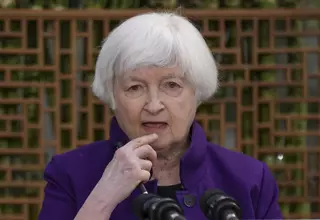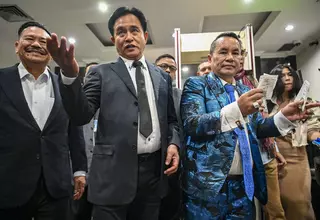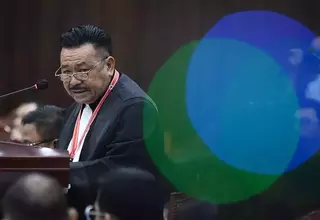IFC Plans to Finance Indonesia's Private Sector by $1b Annually Over Next 3 Years
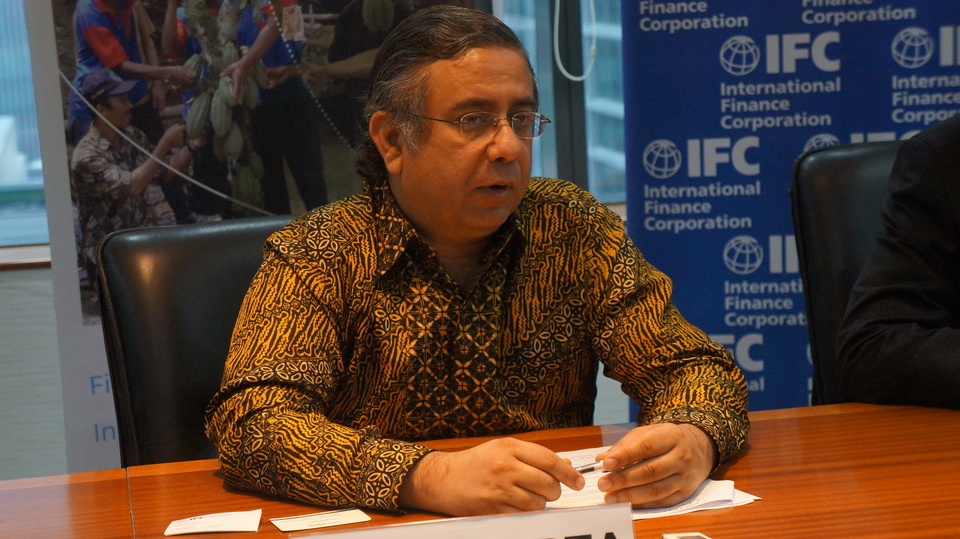
Jakarta. The International Finance Corporation is upbeat that it can increase financing of Indonesia's private sector by up to a billion dollars annually over the next three years, with the provision that the government continues with policy reforms and efforts to improve the investment climate.
The IFC, which is the World Bank's financing arm for the private sector, has had a presence in Indonesia since 1968. It has helped finance and mobilize up to $6.6 billion in funding for private sector investment in Southeast Asia's largest economy.
The billion-dollar financing goal is very ambitious, as the average financing total from the IFC – the largest global development institution focused on the private sector in emerging markets – has never reached such a figure.
IFC director for East Asia and the Pacific Vivek Pathak told the Jakarta Globe in an interview on Monday (22/08) the lender is "confident" that it will be able to increase its portfolio in Indonesia to around a billion dollars a year over the next two to three years.
However, that will only be possible if the government continues "to move at the current trajectory in improving investment climate, and supporting development of infrastructure in the country by creating conducive environments for developing greenfield projects, leading to the introduction of bankable projects to the private sector."
IFC in Indonesia
In Indonesia, the IFC has helped finance a number of companies in a wide range of industries, such as infrastructure, manufacturing, commodity-based supply chains and financial services.
One of its biggest financing projects involved syndicated loans of more than $500 million of to chemical manufacturing company Panca Amara Utama last year for the development of an ammonia plant on Sulawesi island.
There was also a $280 million loan in 2014 to Asahan One, which is a 180-megawatt hydroelectric power plant in North Sumatra built to provide renewable and low-cost power.
Another large financing deal included a $250 million loan the IFC arranged together with Standard Chartered Bank and Deutsche Bank to state-controlled infrastructure financing company Indonesia Infrastructure Finance in 2014.
"The focus for us here has been largely on infrastructure, so we have several infrastructure [financing] plans and we also have several clients in the financial services sector and manufacturing," the Hong Kong-based executive said.
Apart from those projects, the IFC also provided financing to help Indonesian banks increase lending to smaller businesses and financing to help a provincial government develop a green-building code that will reduce energy consumption.
The IFC, which has worked with private enterprises in more than 100 countries, also provides an advisory service to the government and businesses on various projects in Indonesia.
In its worldwide operation, the IFC's total investments in the 2015 fiscal year rose to an all-time high of nearly $43 billion.
Pipeline Projects
In the infrastructure sector, without naming a specific project or client, Pathak said the bulk of the IFC's financing will be to support the Indonesian government's ambition to provide additional electricity capacity of 35 gigawatt by 2019 to cope with the nation's higher power demand.
Electricity demand from consumers in the world's fourth most populous nation is predicted to grow by around 8.7 percent per year between 2015 and 2019.
"Power and infrastructure continue to be a very important part" of Indonesia's growth story, said Pathak, who leads the IFC’s advisory and investment operations in the Asia-Pacific region. The total investment volume in the region hit a record $6.1 billion in the 2014 fiscal year.
Investment Climate
When asked about the investment climate and overall government policy in the economic sector, Pathak said things are on the right track, despite further reforms being needed to convince long-term investors such as the IFC.
"I think it is moving in the right direction. The government needs to continue doing a lot more reform, I would argue, and I think it has started, but the process has to continue and can't stop. As long as that continues, we as long-term investors will continue to be optimistic," said Pathak, who has been with the IFC over the past 16 years, covering Asia Pacific, the Middle East, North Africa and Central Asia in various leadership capacities.
The Indonesian economy grew by 5.18 percent in the second quarter of this year, faster than market consensus, thanks to a gradual rise in commodity prices and stronger domestic consumption.
In a bid to push growth, the government has already released 13 economic policy packages aimed at improving the investment climate.
President Joko "Jokowi" Widodo has also implemented a number of policy reforms in various aspects, including a more investor friendly negative investment list and a tax amnesty program, as the government seeks to attract more investment and stimulate private-sector growth.
Pathak said Indonesia is a great place to set up a manufacturing base.
"Once the infrastructure is in place," and economic integration in the Association of Southeast Asian Nations (Asean) starts to roll out, he projected Indonesia could play a bigger role in the manufacturing industry.
Smaller, but Impactful Deals
While Pathak declined to name smaller financing deals the IFC is working on, he hinted that the lender is keen to fund projects related to climate change, sustainable palm oil development and startups involved in so-called disruptive technologies.
"There are small deals, but hopefully they have a high impact [on the people]. We're also very keen to do things such as disruptive technology," he said.
Tags: Keywords:POPULAR READS
Nissan to Make Next-Generation EV Batteries by Early 2029
Solid-state batteries are widely seen as the next step for EVs.Airlangga Set to Extend Leadership in Golkar After Election Success
Under his leadership, Golkar rose to the second position in the legislative polls and successfully made Gibran the elected vice president.Yellen Says Iran's Actions Could Cause Global 'Economic Spillovers'
Iran's missile attack on Israel early Sunday came in response to what it says was an Israeli strike on Iran's consulate in Syria.Takeaways from Prabowo's Responses to Legal Motion Contesting His Election Win
Part of the argument addresses the claim that the candidacy of Gibran Rakabuming Raka, Prabowo’s running mate, is unlawful.Prabowo Camp Cites ‘Procedural Error’ in Legal Challenge by Rival Candidates
The Constitutional Court's main task is to address alleged discrepancies in vote tallies, which neither of the plaintiffs challenged.Popular Tag
Most Popular
